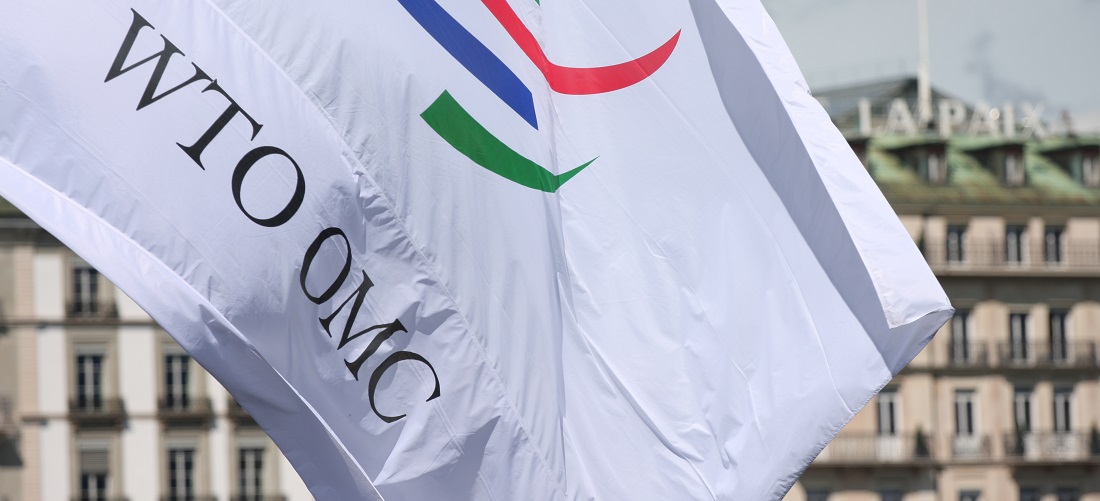Translation: Carlos Dias

Former WTO chief calls for resolution in Brazil-U.S. trade dispute
Aug, 01, 2024 Posted by Gabriel MalheirosWeek 202431
With the experience of having led discussions on trade relations between countries for years, Roberto Azevêdo, former director-general of the World Trade Organization (WTO), is unequivocal: Brazil and the United States, the two largest agricultural exporters in the world, need to find a solution to their disagreements over sugar and ethanol trade. The risk, if this doesn’t happen, is a potential strain on the commercial relations between the two countries, said the diplomat, who is now an international consultant for the Brazilian Agribusiness Association (ABAG).
Washington imposes annual quotas on sugar imports, affecting countries like Brazil, the world’s largest supplier of the commodity. The Brazilian government, in turn, applies an 18% tariff on corn ethanol from the U.S., a measure that Americans consider protectionist.
Mr. Azevêdo told Valor he recently visited Washington and discussed the issue with representatives from the private sector and high-ranking U.S. government officials. “I could clearly detect discomfort in the United States regarding the ethanol issue,” he said.
This discontent is not new, Mr. Azevêdo said. “I think everyone in Brazil familiar with the issue understands the need to find a way to address it to prevent a deterioration of trade relations, especially in the agricultural sector [between the two countries],” he noted.
In the diplomat’s view, this and other issues will not progress without a good atmosphere for bilateral negotiations. “I believe that Brazilian authorities are seeking ways to make this conversation more fluid,” he said.
In March of this year, a Brazilian government delegation held talks with U.S. officials in Washington. One of the topics discussed in these meetings was reducing barriers to sugar in exchange for a potential opening of the Brazilian market to U.S. corn ethanol. However, these negotiations have not yet succeeded.
According to the former WTO director, the debates should continue regardless of who occupies the White House next year. Similarly to trade negotiations, the climate agenda is also expected to persist under any administration.
“Regardless of who is in charge of the new American administration, I think the climate change and environmental agenda will not disappear because it has already globalized and is assimilated by the productive sector,” he assesses. “It may shift more to one side or the other, but it is practically impossible for an administration to ignore this reality, which the market has already embraced.”
In the race against climate change and energy transition, a common point among Brazil, the United States, and many other nations worldwide is the search for feasible solutions to these challenges. According to Mr. Azevêdo, Brazilian agribusiness and the government have the potential to lead international discussions on the topic, a position currently held by the European Union.
He noted that it is not surprising that Europeans have taken on this role, given the increasing prominence of environmental discussions within the bloc. However, the environmental rules and legislation created in the EU have affected the productivity of the bloc’s farmers, which has had consequences. The Europeans “have started to adopt border measures, increasing costs for foreigners. This directly affects the conditions of international trade,” he states.
One example is the anti-deforestation law, which will come into effect on December 30. The rule requires traceability of products and will prohibit the EU from importing goods linked to deforestation.
“Now, Brazil, like the rest of the world, is in the process of trying to recover lost ground over time in reflecting on these issues. The U.S. is in the same situation, trying to understand how to embrace the climate agenda without introducing economic and trade distortions,” said Mr. Azevêdo.
As a consultant for ABAG, he said he has been helping in the dialogues between the Brazilian agricultural sector and their counterparts in other countries to identify challenges, opportunities, and principles that could guide public policies against climate change. The goal is to seek this foundation so that Brazil has a mature discourse at COP-30, which will be held in Belém in 2025.
“From now until COP-30, we are precisely trying to promote this kind of discussion within our area of competence, in the private sector, with other private sector entities from other countries, with other people. Hopefully, this conversation can lead to some form of government action. Perhaps from the Brazilian government, perhaps from a coalition of governments, I don’t know. The truth is that we are trying to do our part,” he said. According to him, the sector is also talking with Brazilian authorities, especially the Ministry of Agriculture, about the issue.
-
Shipping
Jun, 03, 2024
0
Egypt and Brazil look to enter the ship recycling sector
-
Ports and Terminals
Mar, 31, 2021
0
Cabedelo carries out pioneering petroleum coke export operation
-
Coffee
Aug, 29, 2024
0
Brazil’s Coffee Export Surge 26% in July, says Rabobank
-
Economy
Apr, 26, 2023
0
ECLAC downgrades growth estimates to 1,2% this year for Latin America and the Caribbean



